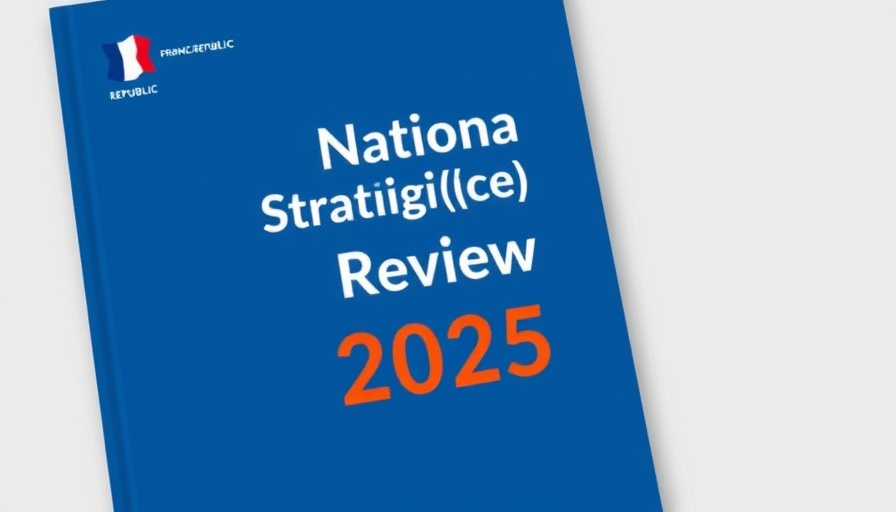
France Expresses Strong Concerns Over Taiwan's Security
On July 14, 2025, the French government released its National Strategic Review 2025, highlighting significant concerns regarding Taiwan and the ongoing tensions in the Taiwan Strait. The report mentioned the region and Taiwan several times, indicating a shift in France's focus toward escalating military activities by China.
The Taiwan Strait and Increased Military Threats
According to the report, China's military capabilities have amplified in recent years, leading to a rise in military exercises in proximity to Taiwan. These developments have raised alarm bells in French diplomatic circles, emphasizing the potential destabilization of the region. The review indicates that China actively pressures Taiwan through military maneuvers and other means, threatening the previous status quo.
Reaffirming Commitments to Peace
Notably, the report follows a recent UK-France summit where President Emmanuel Macron met with UK Prime Minister Keir Starmer. Both leaders stressed their commitment to ensuring peace and stability in the Taiwan Strait during this meeting. France aims to work alongside Taiwan, a crucial member of the Indo-Pacific region, to support democratic values and maintain regional stability.
Reactions from Taiwan
The Minister of Foreign Affairs of Taiwan, Lin Chia-lung, welcomed the French review, expressing gratitude for France's unwavering support. The Taiwanese leadership recognizes France's role as an ally in their quest for freedom and democracy amid growing security threats in the region.
Implications for Global Politics
This strategic review not only highlights France's perspective but also serves as a reminder of the larger implications for global politics. The Indo-Pacific has become a focal point for many countries, including the United States, Australia, and Japan, all of whom have increased their military presence in the region amid concerns over China's assertiveness.
The Bigger Picture: A Call for Diplomacy
As tensions around Taiwan mount, the importance of international dialogue and diplomacy cannot be overstated. France's acknowledgment of the situation in the Taiwan Strait encourages other nations to take a unified stand in defending democratic principles. It's crucial to foster discussions that aim to de-escalate tensions and encourage mutual respect among countries within this evolving geopolitical landscape.
Conclusion: The Path Forward
With rising military tensions and strategic implications, it is essential for nations to work together for peace and security in the Taiwan Strait. France's National Strategic Review 2025 highlights the need for continuous dialogue and cooperative efforts among democratic partners. Moving forward, it's vital that countries like France and Taiwan engage deeply and consistently to uphold democracy and stability, ensuring a lasting peace in the region.
 Add Row
Add Row  Add
Add 




Write A Comment